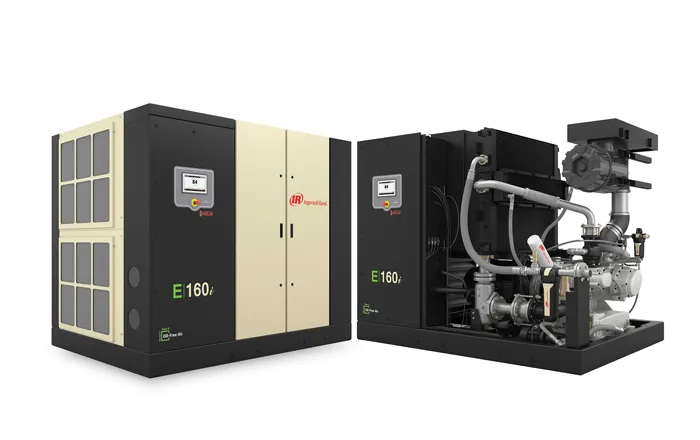Pune, Maharashtra, India
-
Enquire Here :
We are Supplier, Dealer, Distributor, Services Provider of Ecoplant, Ingersoll Rand’s Air Compressor Servicing, Air Compressor Spares Parts, Small / Large / Ammonia Railway Brake Reciprocating Compressors Spare Parts, All Types Of Screw Compressors Spare Parts, Ingersoll Rand Compressors from Pune, Maharashtra, India.
Taking The Guesswork Out Of Compressor Servicing

We understand that the running of your facility and operations will take precedence, often resulting in air compressor servicing taking a back burner
This is why Ingersoll Rand aims to provide you with all the information and support you need to take the guesswork out of compressor servicing
To offer you complete peace of mind, below are some of the questions we’ve found are the most frequently asked
Servicing & Replacement :
Usually, maintenance and service intervals will depend on the operating time and hours of your
compressor. However, even if your air compressor doesn’t reach its operating hours within a 6 to 12
month period, or until the next recurring maintenance, it will need a service. This is down to
wearing filters, oil and parts, which are subject to a sustained ageing process. To ensure
operational safety and trouble-free operation, it’s recommended to observe the specified maintenance
intervals depending on the type of facility. The absolute minimum interval is once a year.
This completely depends on the type and function of the filter element and the environment and
ambient conditions of the installation. Generally speaking, though, all filter elements should be
changed at least every 12 months.
Regular replacement of any filter element, regardless of its type or function, is critical to
reducing pressure drops and energy costs and ensuring the continuous delivery of high-quality air to
the correct standard required.
An oil change goes hand in hand with recurring maintenance. However, this answer is entirely
dependent on what type of compressor oil you use. Typically, mineral oil should be changed every
4,000 operating hours, whereas synthetic oils can last twice as long. Here, you also need to
consider suction conditions and installation as these factors may influence oil change intervals. If
you are unsure, it's recommended to have a laboratory oil analysis, which checks the oil condition.
In principle, the compressor oil approved by the plant manufacturer is the ideal choice. In
oil-lubricated systems, compressor oil is of great importance and must cool, compress, and
lubricate. It also needs to be separable again afterwards. Depending on your application, mineral,
synthetic, or food grade oils can be used.
On an oil-lubricated compressor, the compressor airend is often subject to bearing wear due to its
design. The bearing manufacturers specify a running performance of around 35,000 hours. Once they
have reached this number of operating hours, we’d recommend a preventative exchange of bearings.
On an oil-lubricated compressor, the compressor airend is often subject to bearing wear due to its
design. The bearing manufacturers specify a running performance of around 35,000 hours. Once they
have reached this number of operating hours, we’d recommend a preventative exchange of bearings.
Operating hours is the significant factor that contributes to the service life of a compressor,
rather than its year of manufacture. Therefore, it’s hard to quantify a service life. Due to
technical progress and subsidy programmes, it should instead be quantified whether an economic or
ecological value can be created by replacing older compressed air equipment. This value may be
otherwise achieved by modifying existing compressors, for example, by replacing energy-efficient
electric motors, or by retrofitting heat recovery systems.

